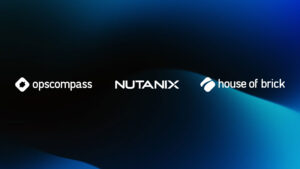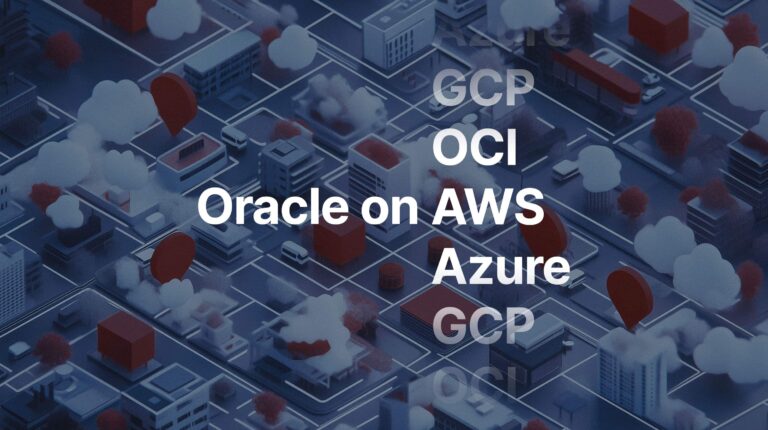Updated on 2-16-24 by Nathan Biggs (@nathanbiggs), CEO
- I would not have imagined it, but Oracle has now blasted past the 4% mark in their annual support renewals. Now they are charging an 8% uplift on previous-year’s support totals. It is now more important than ever to carefully manage your license estate. OpsCompass can help you monitor and model those renewals for support reduction opportunities.
- Oracle is still not reducing their audit activity. I guess I should not be surprised by this. When the only tool you have is a hammer, every problem looks like a nail.
- The acquisition by Broadcom has disrupted VMware customers and partners alike. What it hasn’t disrupted is Oracle’s penchant for falsely claiming that virtualization, by its very nature, requires far more licenses than you really need. We will monitor your VMware environment for you to make sure that everything is staying where it should and you avoid those costly claims from Oracle.
- We are now almost through Oracle’s third fiscal quarter at the end of February. That means that as we approach May 31, Oracle will be motivated to make as many deals as possible. It also means that Oracle will be aggressive in the next three months in using audits, and compliance threats, to bully you into new deals. Let us help you avoid these problems, and take advantage of a negotiating opportunity.
- Oracle has dramatically sweetened the deals on their cloud offerings. Many of them really are compelling. Where we would have completely steered our customers away from the Oracle cloud five years ago, we are now encouraging our customers to at least take a look. The five-year-old suggestion still holds true, however; please carefully consider the full TCO for Oracle cloud offerings, and not just the compelling numbers that Oracle sales presents in their slide decks. We can help with an independent analysis of the true TCO of the opportunities.
- The Java has become so much worse over the past five years! Not only is Oracle requiring a license subscription for Java SE, but now they are requiring a “simpler” license metric of counting every employee and contractor in your company. This is increasing annual Java expense for our customers from 100% to 8,000% of previous year’s fees. We can help evaluate how to get out from under this mess, and support you in negotiating with Oracle.
- Getting off Oracle is now not just about database, but now especially about Java. You have options, and we can help with planning and implementation.
—(Blog post published in April 12, 2019 below)—
The end of the fiscal year for Oracle is always a crazy time, both for Oracle customers and employees. It can also be a little crazy for Oracle licensing and infrastructure consultants. I thought I would share a few things that we are seeing in our licensing engagements and offer some recommendations for our clients as we approach the magical date in Oracle-land of May 31st.
- Watch out for the extra cost in your renewals this year
For many years, Oracle has included in their contract paperwork, that they have the right to increase Software Update License & Support fees by an amount not to exceed 4% of the prior year’s fees (at least for the first and second renewal years). This is included in older OLSAs as well as the newer OMAs that you can view on Oracle’s website. If you search these documents (or your own license agreements) for “4%” you will see the following language:
Software Update License & Support (or any successor technical support offering to Software Update License & Support, “SULS”) acquired with Your order may be renewed annually and, if You renew SULS for the same number of licenses for the same Programs, for the first and second renewal years the fee for SULS will not increase by more than 4% over the prior year’s fees. If Your order is fulfilled by an authorized reseller, the fee for SULS for the first renewal year will be the price quoted to You by Your authorized reseller; the fee for SULS for the second renewal year will not increase by more than 4% over the prior year’s fees.
Traditionally, Oracle has only increased annual SULS by 3% from the prior year’s fees. We have seen in our client base however, that Oracle has moved to a 4% uplift this year. Since these annual increases are like compounding interest, your annual SULS payments can start to spiral out of control, which has led to many of our clients paying above list-price for their support payments.
At House of Brick, we analyze our clients’ license entitlements, and help them with strategies to control, or even reduce, their support payments.
- Oracle audit activity is not decreasing
We have heard that Oracle is telling their customers that they are reducing audit activity. Not from our perspective! We see that Oracle is continuing to use the lever of their software audits to pry loose more revenue from their customers. Of course, Oracle has the contractual right to audit their customers’ use of their software. However, when they use intimidation tactics, and non-contractual compliance claims in that process that’s where we draw the line.
If you think that you might be audited, it is always better to know where you stand earlier rather than later. Let us help you with an internal compliance assessment and audit preparation. Of course, if you are truly out of compliance, you will need to settle up with Oracle, but we can help you to remediate those gaps going forward, and even help identify some cost savings by reducing the license footprint. We will help ensure that you only pay for actual non-compliance, and not for their outrageous claims that are not based on the terms of your actual license agreement.
At this time of the year, Oracle auditors may be pressuring customers to resolve audits within 30 days in order to recognize the revenue in this fiscal year.
- Oracle is not backing down on their non-contractual VMware claims
After helping hundreds of our clients avoid the trap set by Oracle that you have to license your entire VMware environment (you do not – only those servers where Oracle software is “installed and/or running”) we would have thought that Oracle might get wise and back down. Oracle is not backing down, and if anything is doubling down on these claims. If your Oracle sales reps are telling you things like, “if you use VMware, you have to license every host for Oracle,” or “you have to submit your infrastructure design to Oracle for written approval,” then you are being bullied. You do not have to give in to bullying tactics.
- Now is a good time to negotiate purchase discounts
We like to say that Oracle is “coin operated”. That means if you put the coins in (by buying stuff), they stop bothering you (of course, they are not the only vendor that this is true for). We are approaching Oracle’s end of fiscal year on May 31. You have a lot of Oracle reps that are trying to make their number for the year, and will get very creative in structuring discounts for needed purchases. Don’t be afraid to ask for more. With Oracle, practically everything is negotiable.
- Be careful about cloud TCO numbers from Oracle
Larry Ellison famously claimed that running Oracle in the Oracle cloud costs half as much as running Oracle on AWS. Of course, this claim was facilitated by Oracle’s change to their cloud policy that doubled the required licenses to run on AWS and Azure.
The truth is, the price only doubles if you are not smart about your cloud deployments. You have many options for deploying Oracle in Azure or AWS. Just to list a few AWS options, you can use RDS, EC2, VMware Cloud on AWS, EC2 Dedicated Hosts, and EC2 Bare Metal Instances. Each of these options have various licensing choices that you can select from in order to minimize license costs, and maximize your effectiveness.
House of Brick is an AWS Advanced Tier partner, and is working with AWS and many of their clients to architect sound, license-controlled, cloud deployment strategies. You can review our white paper that features a cost comparison of running Oracle databases in the Oracle Cloud versus in the VMware Cloud on AWS.
- Java users beware
Starting this month (April, 2019), Oracle began requiring a license for certain Java usage. The following excerpt is from an excellent blog post from Jeff Klemme and David Woodard at House of Brick. I recommend reading the full post.
Any commercial use of Oracle JDK (Java SE), requires you to purchase a Java subscription with Oracle or switch your applications to OpenJDK. There are a few exceptions to this rule however, which include:
- You have an existing support contract for Oracle Java SE Advanced, Oracle Java SE Advanced Desktop, Oracle Java SE Suite, and/or Java SE Support.
- Oracle has indicated that if you are using a supported Oracle product which requires Java SE, you can continue to access to Oracle Java updates, as required by that Oracle product, for the use of the supported Oracle product, at no additional cost. See My Oracle Support Note 1557737.1 for more details.
- If you have a third party application requiring Oracle JDK and Oracle JDK is licensed by that application vendor. You need to check with the application vendor as to any bundled or installed Java components that come with their application. We have already heard of cases where application vendors are starting to remove the Java components from their installation process and are requiring the customer to download and license (if necessary) the appropriate JDK separately. Additionally, some vendors are switching to delivering OpenJDK with their software. NOTE: you should not switch to OpenJDK from Oracle JDK for a third party application unless the vendor has certified OpenJDK for use with their product, and will still support you when running on OpenJDK.
- You are on Java 8 and have no plans to upgrade or patch beyond the January 2019 update. For many this is most likely not a valid option, as having an unpatched Java implementation would be flagged as a security risk in most, if not all, security scans.
- If you want to get off of Oracle (I see many hands raised), it is worth evaluating your options
With the intimidating way that Oracle treats their customers, most organizations have had at least the fleeting thought, “what would it take for me to migrate to another platform?” Now, let it be known that we are fans of Oracle software products, including their database and applications. But, we completely understand when one of our clients asks us how they can migrate onto non-Oracle products. We tell some of our clients (especially those running enterprise applications that only support Oracle), that the time, cost, and risk of migrating is likely not worth it for them. For others however, we tell them that it is worth exploring their migration options.
If you are able to consider another platform, there has never been a better time than now to make that happen.
- Microsoft SQL Server is an excellent enterprise-class database platform. While their licensing has changed a bit recently to be more like Oracle’s, Microsoft’s per-vCPU and license mobility options still make it far more virtualization and cloud friendly. It is also less expensive, with many features that Oracle would charge extra for, included at no additional charge. Many application vendors support both an Oracle and SQL Server backend databases. So, if you are using one of these applications, and are fed up with Oracle’s bullying, then this may be an easy decision for you. House of Brick can help with the planning and implementation to make this process work smoothly, while ensuring you stay license compliant throughout the migration.
- PostgreSQL, and other open source variants (including their commercial support vendors, such as EnterpriseDB) also offer good migration options.
- Our good friends at AWS offer the Database Freedom program and would love to help you figure out how to migrate off of Oracle and on to an AWS-supported platform. From their website:
“Database Freedom supports migrations to Amazon Aurora – a MySQL and PostgreSQL compatible relational database built for the cloud, Amazon RDS for PostgreSQL and MySQL, Amazon Redshift and Amazon DynamoDB. Additionally, AWS Schema Conversion Tool and AWS Database Migration Service help customers migrate databases to AWS quickly and securely.”
While it is not possible, or even reasonable, for everyone to get off of Oracle, if you feel like you would like to explore it, you have several options available to you.
Conclusion
While dealing with Oracle can be complicated, hopefully these seven pitfalls to avoid as we approach Oracle’s end of fiscal year can give you an idea where to focus your efforts.
Keep in mind, if you have received an audit report from Oracle and are shocked at the findings, feel like you are being bullied by Oracle over non-contractual licensing claims, or are ready to explore migrating to another platform altogether, we would be happy to review your situation and discuss your options. Let us know if you need help. We have your back!







